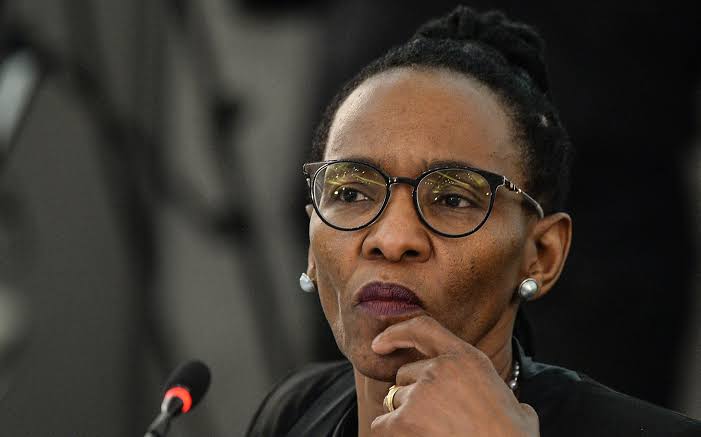
Faith Nyasuguta
South African Head of State Cyril Ramaphosa has appointed the head of the appeals court, Mandisa Maya, as the nation’s deputy chief justice – becoming the first woman to occupy the position.
Her appointment is effective from 1 September, the Presidency said in a statement on Monday. She was also the first female president of South Africa’s Supreme Court of Appeal.
The presidency has tweeted the announcement:
In March, Justice Maya accepted the nomination by the president to the position, after being interviewed for the chief justice position.
Raymond Zondo, then the deputy chief justice, was appointed the chief justice while she was nominated to deputy chief’s justice position pending an interview for the position later.
Last month she was the only candidate interviewed for the position after which the country’s Judicial Service Commission announced it would advise the president to appoint her.
Here are some interesting facts you need to know about Justice Maya.
EARLY YEARS
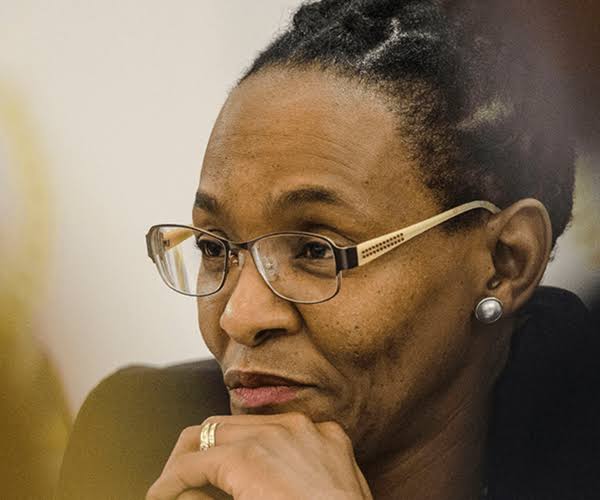
Mandisa Muriel Lindelwa Maya was born in Tsolo, Eastern Cape, one of the nation’s poorest areas, which borders the Indian Ocean, in 1964. She has five younger siblings, three children and is married to Dabulamanzi Mlokoti. Both her parents were teachers.
She grew up in King William’s Town and Mthatha where she matriculated (finished high school) from St John’s College, in 1981. The school is one of the oldest – and one of the most highly rated – in the country. It it closely associated with the Anglican Church of South Africa, having been established in 1879 by a Church of England missionary.
Maya’s early childhood was in the former Ciskei, which was one of the four Bantustans or homelands – together with Transkei, Bophuthatswana, and Venda – which were granted nominal independence by the apartheid government. They were some of the mainly rural and impoverished areas set aside by the apartheid government where black people exercised nominal “self-rule” along ethnic lines. They offered little opportunity for advancement and upward mobility.
Nevertheless, growing up in a Bantustan did not deter Maya’s from her commitment to justice and human rights that saw her pursuing studies in law. She holds B.Proc from the University of Transkei, LLB (University of Natal), and LLM (Duke University, North Carolina in the USA). She is a Fulbright Scholar, was a fellow of Georgetown University law and gender programme as well as a Commonwealth Foundation fellow and a Duke Law School International Alumnus.
CAREER AND ACHIEVEMENTS
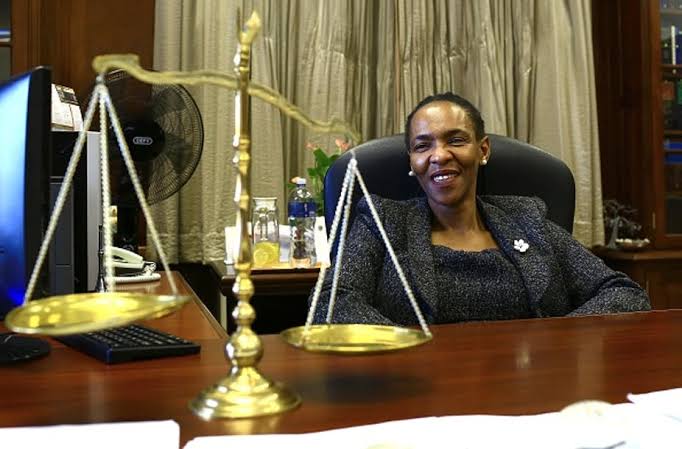
Maya began her legal career as an attorney’s clerk in a professional firm in Mthatha. She went on to become court interpreter and prosecutor of the Magistrates’ Court in the town. This was followed by the job of Assistant State Law Adviser before she did her pupillage at the Johannesburg Bar. She subsequently became a a practising advocate associated to the Transkei Society of Advocates.
Maya also had a stint as Law Lecturer at the University of Transkei.
The positions she held before becoming a judge imbued in her values that make her a suitable candidate for Chief Justice. These include ideals and values of integrity, impartiality, professional ethics and court decorum.
She also has a footprint in other jurisdictions – notably Lesotho, Namibia and US. In Washington DC she was policy counsel and lobbyist intern at the Women’s Legal Defense Fund. She has also acted as a judge in the Supreme Court of Namibia and the Appeal Court of Lesotho.
In 2016 Judge Maya became the first woman President of South Africa’s Supreme Court of Appeal. The Supreme Court of Appeal, established in 1910, is the country’s second highest court after the Constitutional Court. This makes her the third most senior judge in South Africa after the Chief Justice and the Deputy Chief Justice.
She has been honoured and acknowledged in the legal profession, including honorary doctorates of law by a number of universities. Her leadership qualities have been recognised in various other ways too. For example, she was elected the President of the South African Chapter of the International Association of Women Judges.
BENCH HIGHLIGHTS
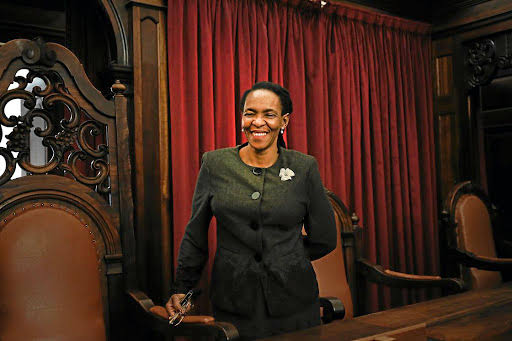
Her years on the bench, including the current position, have been characterised by the championing of children and women’s rights, the poor, and many other marginalised groups.
In 2012 she received the South African Women Lawyers Icon award for her role in empowering and mentoring women in both the judiciary and the broader legal profession.
Maya is one of the few judges in South Africa with a strong commitment to changing the approach of judges in adjudicating gender-based violence and femicide cases.
She told a summit on gender based violence and femicide in 2018:
So while there has been a marked ideological shift in the ways judges adjudicate matters relating to gender-based violence and femicide in recent times, including the abolition of cautionary rule in respect of sexual offences, and the conduct of many judicial officers can be commended, the fate of these victims should not be left to the off-chance that the individual Judges hearing their cases will be attuned to the sensitivities. There should be a formalisation and standardisation of these norms so that it is incumbent on the Courts to pay particular attention to the treatment of victims in these cases.
Through her judgments she has demonstrated comprehensive knowledge of the law and the Constitution. She is also considered a jurisprudential thought leader given that some of her judgments have – directly and indirectly – influenced nation-building.
For instance, in the 2020 AfriForum NPC v Chairperson of the Council of the University of South Africa and Others case, she ruled that the removal of Afrikaans as a medium of instruction at the University of South Africa was unlawful and unconstitutional. The decision was later confirmed by the Constitutional Court.
Her dissenting minority judgment in Minister of Safety and Security v F, 2011 greatly influenced the decision of the Constitutional Court. The Constitutional Court reversed the Supreme Court of Appeal’s majority decision and confirmed her minority decision.
The matter before the Supreme Court of Appeals was about a claim for damages arising from the rape of a woman by an off-duty policeman. The majority of the court held that the Minister of Safety and Security was not vicariously liable because the policeman committed the rape when he was off duty.
Maya penned a dissenting judgment in which she argued that members of the police services were entrusted with the constitutional role and the responsibility to conduct themselves properly to foster the community’s trust. And that this could not be suspended because a member was off duty.
DEPUTY CHIEF-JUSTICE ROLE
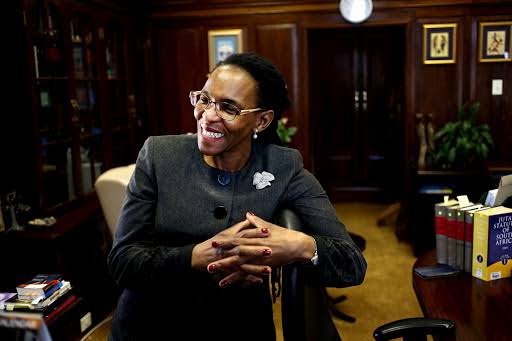
Maya has overcome career labyrinths faced by all female judges in South Africa.
The steeliness with which she will approach the job is reflected in her response to the question in a previous interview for the position of Chief Justice: Is South Africa ready for a woman Chief Justice? She responded:
I’m not here because I’m a woman, I’m a worthy judge … I’m just a good woman judge.




